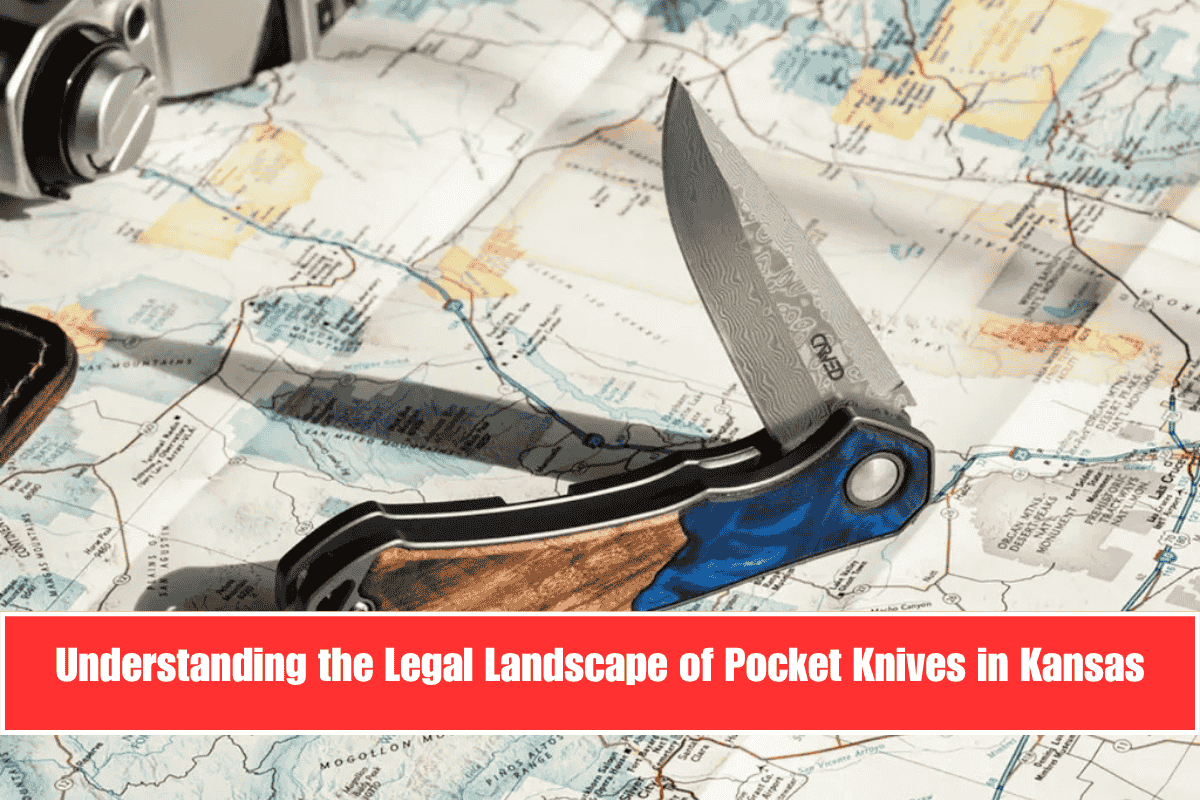Pocket knives are handy tools for many people, whether for everyday tasks, outdoor activities, or self-defense. However, not everyone is aware of the legal rules surrounding the ownership and use of pocket knives, especially when it comes to carrying them in public. If you live in Kansas or are planning to visit, it’s important to understand the state’s laws regarding pocket knives to avoid potential legal issues. This article will break down the key regulations and help you stay informed about carrying and using pocket knives in Kansas.
Are Pocket Knives Legal in Kansas?
Yes, pocket knives are legal in Kansas. The state has no outright ban on owning or carrying pocket knives, which makes it easier for residents to carry them for practical purposes. However, while owning a pocket knife is legal, there are specific laws about carrying them, especially in public places or on school grounds. Understanding these regulations is essential for making sure you’re following the law.
What Types of Pocket Knives Are Legal to Carry?
In Kansas, there are different rules depending on the type of knife you are carrying. Generally, the state does not have strict regulations regarding blade length or knife types, but there are a few restrictions on certain knives.
- Standard Pocket Knives: These are legal to carry in most situations, and there are no blade length restrictions for knives that are used for utility purposes. A common folding knife or pocket knife with a simple blade is acceptable for everyday carry.
- Switchblades and Automatic Knives: Kansas law permits the ownership and carrying of switchblade knives (automatic knives) that open with the push of a button. However, while they are legal to own, some restrictions may apply in certain locations, such as schools or government buildings. You should check specific local laws to ensure you’re not violating any rules.
- Other Specialized Knives: Kansas also allows other specialized knives, such as hunting knives, folding knives, and multi-tools, as long as they are carried legally and not used to cause harm or create danger in certain settings.
Concealed Carry Laws for Pocket Knives
Kansas law does not have specific restrictions on concealed carrying of pocket knives, meaning you can carry them in a pocket, bag, or on your person as long as it is not being used as a weapon or in an inappropriate context. However, it’s important to remember that concealed carry of weapons, including knives, is regulated in some cases, especially if the knife is larger or designed to be used for self-defense.
If you’re caught carrying a larger knife or a knife that is not meant for everyday use in a concealed manner, this may lead to legal trouble. The key here is intent. If a law enforcement officer believes you’re carrying the knife with the intent to harm or use it for unlawful purposes, it could result in a charge.
Carrying Pocket Knives in Schools or Public Buildings
In Kansas, there are strict rules about carrying knives, including pocket knives, on school grounds and certain public buildings. It is illegal to carry any kind of knife, whether concealed or openly, on school property. This includes middle schools, high schools, and colleges, as well as daycare centers and public buildings. If you’re caught carrying a knife in such places, it could result in criminal charges, including possible expulsion from school or arrest.
In public buildings like courthouses or government offices, you may also face restrictions on carrying pocket knives. Be sure to check for signs or ask security personnel if you’re unsure about the rules in a particular location.
Self-Defense and Pocket Knives
While Kansas law allows the possession and carrying of pocket knives, it’s important to understand how they are viewed in self-defense situations. A knife can be considered a weapon if used in a way that threatens or harms another person. In situations where self-defense is claimed, the use of a pocket knife will be judged based on the circumstances.
Kansas law generally permits self-defense when you’re in immediate danger, but the use of a knife must be proportionate to the threat you face. If the force used exceeds what is necessary to protect yourself, you could face charges, even if the knife was used in a self-defense situation.
Penalties for Violating Knife Laws in Kansas
If you break Kansas’ knife laws, the penalties can vary. For example, carrying a knife in a restricted area like a school or public building can result in criminal charges, which may lead to fines, jail time, or a criminal record. The severity of the penalty depends on the circumstances, such as whether the knife was used in a crime or if it was carried with ill intent.
Generally, violations of the knife laws in Kansas are classified as misdemeanors, but in some cases, they can escalate to felony charges, especially if there are aggravating factors such as prior criminal history or the knife being used in a violent act.
In Kansas, owning and carrying pocket knives is legal, but there are important laws to keep in mind. While there are no strict regulations on blade length for everyday knives, you should be cautious about carrying knives in public spaces, especially schools or government buildings, where it could lead to criminal charges. Additionally, while pocket knives can be used for self-defense, they must be used proportionately to the threat, and misuse could lead to serious legal consequences. Always be aware of where you are carrying your knife and ensure you are following the law to avoid any issues.
Sources
[1] https://www.akti.org/state-knife-laws/kansas/
[2] https://www.shokuninusa.com/blogs/news/pocket-knife-laws-knife-length-laws-usa
[3] https://knifeade.com/kansas-knife-law/
[4] https://www.seneca-kansas.us/kansas-knife-laws/
[5] https://dailycarryco.com/blogs/everydaycarry/understanding-and-maintaining-a-gravity-knife-in-kansas












